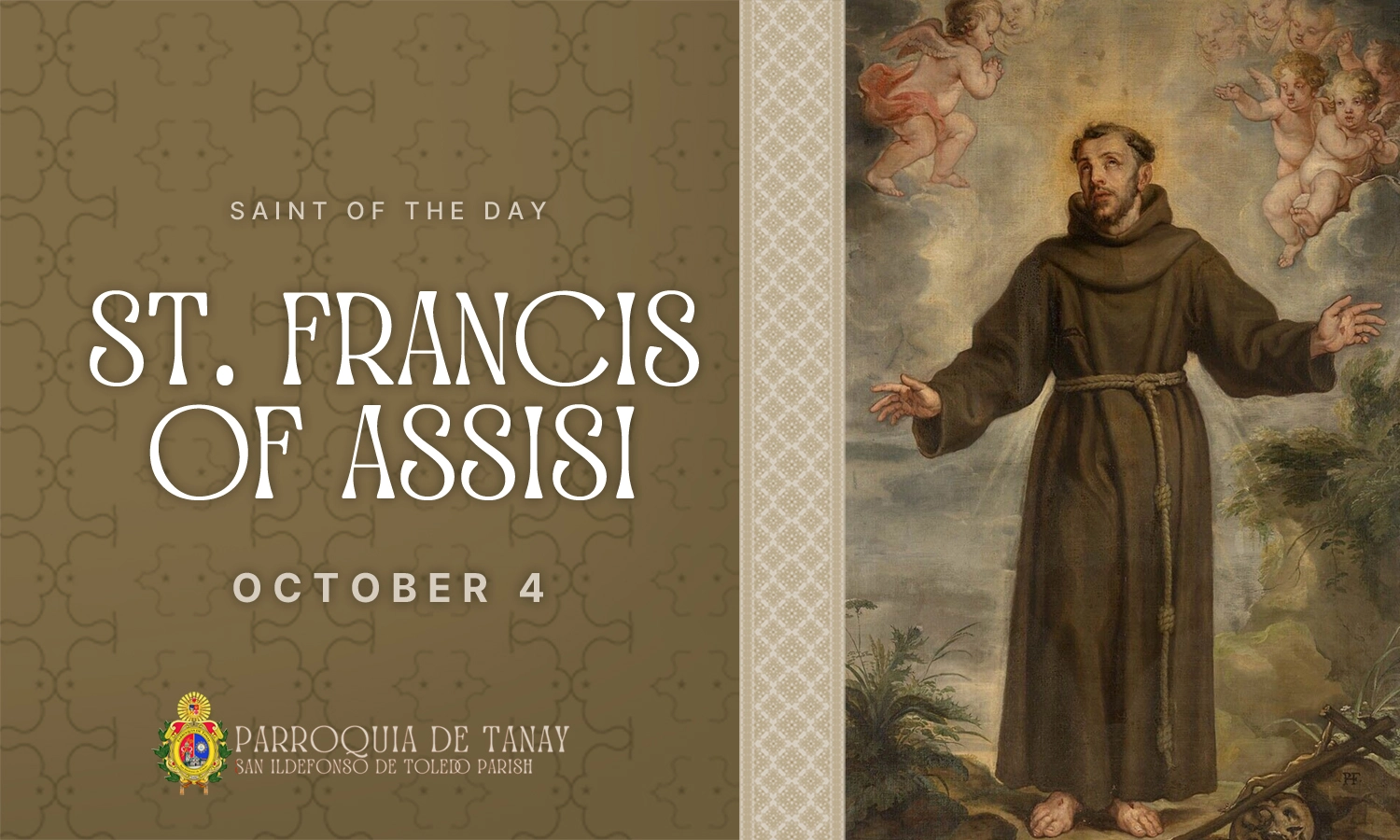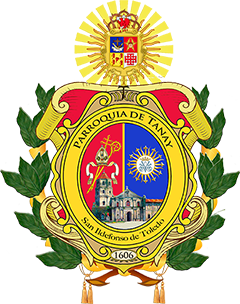Saint of the Day: St. Francis of Assisi | October 4
By SIDTP SoCom
Published on October 4, 2024
St. Francis of Assisi, born Giovanni di Pietro di Bernardone on September 26, 1181 or 1182, in Assisi, Italy, is one of the most revered figures in Christian history. Known for his profound humility, deep spirituality, and commitment to poverty, St. Francis is celebrated as the founder of the Franciscan Order and a model of Christian virtue.
Francis was born into a wealthy merchant family. His father, Pietro di Bernardone, was a prosperous cloth merchant, and his mother, Pica, was a noblewoman. As a young man, Francis lived a life of luxury and indulgence, enjoying the comforts and privileges of his family’s wealth. However, he experienced a significant transformation in his late teens and early twenties.
During a period of illness and military service, Francis began to reflect on the transient nature of wealth and power. His encounter with lepers and his subsequent vision of Christ calling him to “rebuild my Church” marked the beginning of his radical conversion. He renounced his family’s wealth and devoted himself to a life of poverty, simplicity, and service.
In 1209, Francis formally founded the Order of Friars Minor, commonly known as the Franciscans. The order was characterized by its commitment to living the Gospel life in absolute poverty and humility. Francis and his early followers traveled throughout Italy, preaching repentance and living among the poor and outcast. They sought to embody the teachings of Jesus Christ through their actions, embracing poverty, chastity, and obedience.
The Franciscan Order quickly grew in numbers and influence. Francis’s approach to spirituality emphasized a deep love for all of God’s creation. He is famously known for his reverence for nature and animals, often referring to them as his “brothers” and “sisters.” This deep connection to the natural world is reflected in his “Canticle of the Sun,” a hymn of praise to God for the beauty and diversity of creation.
Despite his success in founding the Franciscan Order, Francis remained humble and deeply focused on his spiritual life. He received the stigmata, or the visible wounds of Christ’s crucifixion, in 1224, which was seen as a divine confirmation of his profound union with Christ.
Francis’s health declined rapidly, and he died on October 3, 1226, at the age of 44. He was canonized as a saint by Pope Gregory IX in 1228, just two years after his death. His feast day is celebrated on October 4th.
St. Francis’s impact extends beyond the Franciscan Order. His life and teachings have inspired countless people to live out their faith with simplicity, compassion, and a deep respect for all of creation. He is also the patron saint of animals and the environment, reflecting his enduring legacy of love for God’s creation.
Sources:
1. Kazantzakis, Nikos. St. Francis of Assisi: A Biography. Harcourt Brace Jovanovich, 1981.
2. House, Adrian. Francis of Assisi: A Revolutionary Life. The Crossroad Publishing Company, 2001.



